Can H & M's clothes be rented?
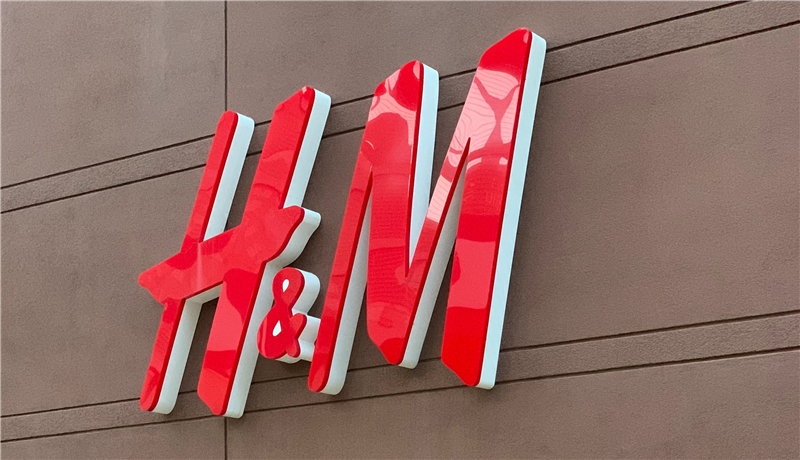
Would you rent a fast fashion dress for 260 yuan? Swedish fast-fashion giant H & M raises this new question to consumers. According to the fashion business news, H & M recently opened a new Sergels Torg concept store in Stockholm, where the headquarters is located. In addition to general merchandise, the concept store launched the first H & M clothing rental service, and will also open a tailoring counter to repair damaged clothes. The clothing rental service launched by H & M this time is for members. Members can rent up to 3 pieces of clothes at a time for a week. The rental price of each piece of clothing is about 350 Swedish crowns and about 260 yuan. The original price of the goods is between 600 and 3000 Swedish crowns. Wait. Consumers can try it on in the store, book it online in advance, and reserve H & M's personal stylist for advice on how to wear it.
It is worth noting that H & M's rental service is limited to high-end series, the price is higher than ordinary products, suitable for event wear rather than daily use, including about 50 selected party dresses and wedding dresses, from Conscious launched by H & M from 2012 Exclusive environmentally conscious action limited series and some new autumn 2019 products. The strength of fast fashion discounts is well known. It is usually wise to buy only high-end products when H & M chooses to rent only high-end products.
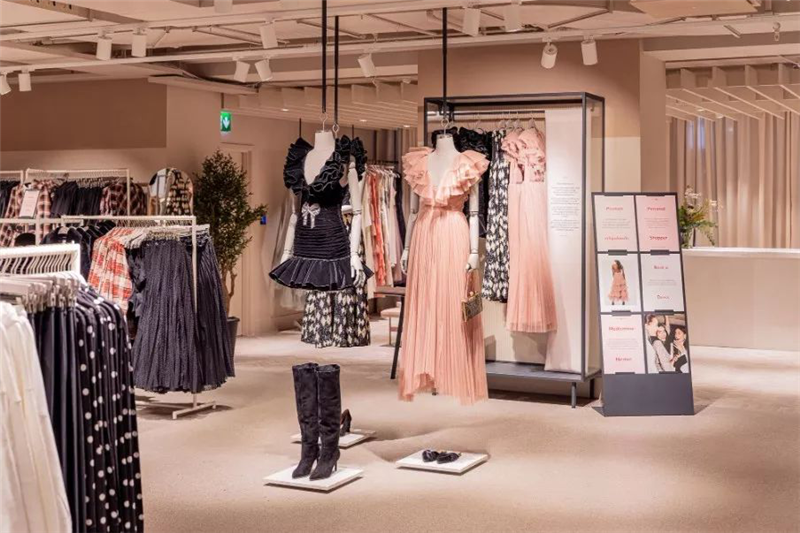
H & M has developed clothing rental business into China. According to the latest news released by H & M official today, H & M Group's Innovation Lab will cooperate with domestic online clothing rental platform Yi Ersan to test apparel rental business in China for a period of three months. It is reported that Yi Ersan, founded in 2015, currently has 15 million registered users. Laura Coppen, head of the Innovation Lab of the H & M Group's Recycling and Sustainable Business Development Center, said that H & M was inspired by Yi Ersan's green and environmentally friendly cleaning factory and Yi Ersan's sustainable fashion vision. The recycling and treatment of water resources and the technical investment that helps to improve the recycling utilization rate of Yi Er San Washing Operation Center are in line with H & M Group's expectations for partners.
H & M is not the only fast fashion brand involved in clothing rental services this year, and fast fashion giants such as Gap and Urban Outfitters have launched similar businesses. American fast fashion group GAP brand Banana Republic launched an online women's clothing rental service "Style Passport" in the US market in September this year, using a monthly subscription model. Users spend $ 85 per month, about RMB 600, can be rented Get three pieces of clothes for about $ 100 each, and enjoy free delivery, replacement, and laundry services. If the user fancy a certain clothes, they can choose to buy and keep. Earlier than Gap and H & M is the parent company of the fast fashion brand Urban Outfitters and Free People, the U.S. youth apparel group URBN. URBN officially launched Nuuly, a women's clothing rental service website, on July 30 this year. Users pay $ 88 a month to rent 6 pieces of clothing, which is similar to the "Style Passport" model of Banana Republic but seems more cost-effective.
URBN also appointed Chief Digital Officer David Hayne as President of Nuuly. David Hayne expects to launch Nuuly in the first year, which will attract 50,000 subscribers and generate more than $ 50 million in annual revenue without affecting apparel sales revenue. "We don't think customers will stop buying. Buying is good for products that are used more frequently, and leases are good for products that you want to try. Nuuly tries to stay close to the renter's thinking logic. Unlike competitors who choose to rent well-known fashion brands, in addition to "own" brands such as Urban Outfitters, Nuuly provides mostly niche brands that users are interested in and want to try to form a unique competitive advantage. According to David Haynere, people don't usually buy an unfamiliar brand, but they are willing to try it.
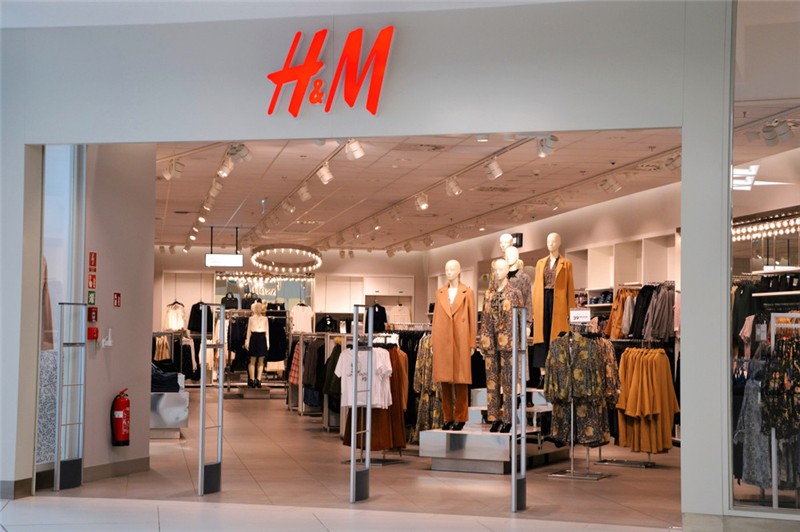
According to the current introduction of Nuuly's official website, the clothing available for rent includes classic brands, emerging designer brands, premium denim brands, vintages, etc., covering Urban Outfitters, Anthropologie, Free People owned by UNBN and third-party brands Levi's, YUMI KIM, Love Shack There are more than 100 brands such as Fancy, PAIGE, Universal Standard, etc., with a total of thousands of products. In addition, Ann Taylor, American Eagle, Vince Unfold, Express and other American clothing brands have launched clothing rental business one after another this year. New York rental clothing startup CaaStle is the operator of the rental clothing business for these brands, providing technical and logistics support. Style Passport is also jointly created by Banana Republic and CaaStle. In the future, the two parties may launch similar men's clothing rental services.
CaaStle CEO Christine Hunsicker has said that the clothing rental business can bring more revenue to clothing retailers, because consumers often buy clothes when they rent them. In fact, clothing leasing is not a new concept at all, and there are a lot of offline rental shops for costumes, dresses and formal wear. Back in 2009, Jennifer Hyman, a graduate of Harvard Business School, has successfully developed this business online with the help of the Internet. She is the co-founder and CEO of Rent the Runway, the originator of online clothing rental platform in the United States. When Jennifer Hyman saw her sister worrying about whether to buy an expensive dress for a wedding, she came up with the idea of starting Rent the Runway.
At first, Rent the Runway only rented expensive dresses. Now the rental service has expanded to daily clothing. The products are mainly from designer brands, light luxury brands, and the rental prices of ready-to-wear and accessories are generally only 10% to 20% of the market price. Rent the Runway offers single-item leasing and monthly subscriptions, the latter of which is growing rapidly and already accounted for more than 50% of the company's total sales in mid-2018. Rent the Runway's monthly subscription offers a variety of package options, such as an unlimited package of $ 159 / month, customers pay $ 159 per month, and can choose to rent 4 pieces of clothing from hundreds of brands at one time, and the total monthly rental is unlimited .
Significantly, Rent the Runway, which was founded ten years ago, has now become a model for fast fashion brands with a longer history. Both the Style Passport online women's clothing rental platform launched by Banana Republic and Nuuly, the women's clothing rental website of URBN Group, both got some inspiration from Internet clothing rental companies such as Rent the Runway. Rent the Runway, which pioneered the business model of online rental clothing, is highly favored by capital. Alibaba founder and former chairman Ma Yun and former executive vice chairman Cai Chongxin once injected RMB 20 million into Rent the Runway through investment fund Blue Pool Capital in March 2018. At the time, there were comments that Jack Ma wanted to use the accumulated experience of Rent the Runway over the past ten years to improve Alibaba's "leasing business" layout.
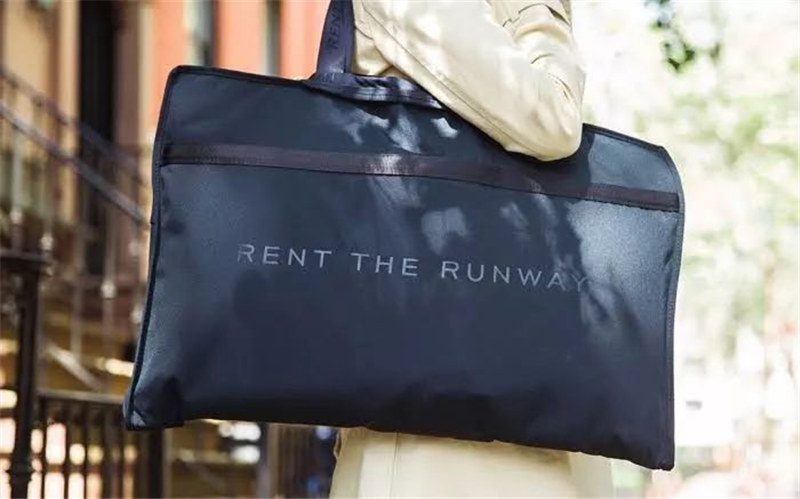
Rent the Runway announced in March of this year an additional $ 125 million in funding from investors. Rent the Runway currently has a market value of more than $ 1 billion and has more than 10 million members. However, unlike the booming development of foreign online clothing rental platforms, China's online clothing rental platforms have rapidly transitioned from the expansion period of 2016 and 2017 to the market contraction period, and the entire industry has undergone several rounds of reshuffle. At present, there are only a few survivors in the market such as "Yi Er San" and "Goddess", and more platforms such as "Dora Yimeng", "Magic Wardrobe" and "That Clothes" have lost in fierce market competition , Has been bankrupt or completely transformed.
The ups and downs of online clothing rental platforms in China have shocked investors and made people who are more concerned about clothing rental realize that because of the huge differences in consumption concepts, the experience of foreign online clothing rental platforms cannot be easily transferred to China. Considering that domestic consumers do not have much formal dressing occasions and attendance requirements compared to European and American consumers, domestic online clothing rental platforms have chosen to focus on daily clothing rental. However, many people overlook the fact that although the frequency of renting formal dresses is not high, Chinese consumers who want to rent daily clothes are actually only a minority, or the demand for domestic consumers to explore early adopters in clothing has not yet been cultivated. . Even consumers who like to try more on clothing, there are a large number of affordable clothing stores on Taobao that can meet their needs. Online clothing rental platforms are just one of their alternatives, and may not even be the first choice.
In addition, the quality control problem of the clothing rental platform has been criticized by users. On the one hand, the clothes received by users are different from the pictures. Although they are known as well-known brands, the texture is the same as Taobao styles with a price of one or two hundred yuan. On the other hand, if the platform's fashion choices cannot meet the needs of consumers, it is also difficult for the platform to cultivate users' long-term habits. From a cultural point of view, in the Chinese market that pays attention to "wearing new clothes," clothing hygiene issues, being passed by strangers, and other reasons will become a psychological burden on Chinese consumers. Fast fashion brands that have just launched clothing leasing business may be fortunate. Compared to the limited market for online clothing rental platforms in China, the online clothing rental business in developed countries such as Europe and the United States has more room for development. Consumers are new to clothing rental. Is also more interesting.
According to research firm Allied Market Research, the global online rental clothing market is expected to grow to $ 1.85 billion by 2023, far exceeding the $ 1.01 billion in 2017. A survey conducted by the University of Nottingham Trent in the UK and Westfield Shopping Centre in London showed that 46% of respondents said they would rent clothing to ensure that they can keep up with fashion trends and ensure environmental sustainability. Taking a step back, fast-fashion giants may not be planning to make a profit from apparel rental business. Unlike online clothing rental platforms, which must rely on clothing rental to make a profit in order to survive, fast fashion has more demands when it comes to clothing rental. After all, the current global online clothing rental market of more than $ 1 billion is only a fraction of the size of fast fashion.
The biggest demand is sustainable fashion. Leasing replaces buying, which reduces consumer impulse purchases. In the past few years, fast fashion has been criticized for producing a lot of cheap clothing that can only be thrown away a few times. Providing rental options can alleviate the negative impression of waste caused by fast fashion, and restore consumers from an ethical level. According to the latest report released by fashion agency Thredup, 25% of female consumers said that they will no longer buy fast fashion clothing from 2019, most of them are young consumers. Of the more than 1,000 women surveyed by Thredup, 58% believe that waste should be reduced this year, and another 42% said they will reduce waste by buying second-hand goods. In recent years, H & M, which has focused on sustainable development, has also called the development of clothing leasing business "an important step towards a sustainable, cyclic fashion future." series.
The Conscious Exclusive series and the priced Conscious series are all sustainable clothing series launched by H & M, using environmentally-friendly organic renewable fabrics, including men and women. Conscious Exclusive focuses on dresses and wedding dresses, which have a more textured and design sense. From this perspective, the leasing business may also be a new way for H & M to expand its influence on high-end sustainable product lines. Previously, H & M mainly used star and supermodel promotion to enhance the exposure of the series. Model Liu Wen, actor Yang Mi, and singer Xiao Jingteng have all attended public events or posted photos on social platforms in Conscious Exclusive dresses. The white wedding gown worn in the wedding photos posted by Chinese actress Shu Qi on Weibo was a limited edition product of Conscious Exclusive presented to her by H & M, priced at more than 3,000 yuan, which caused a heated discussion.
The second appeal is to reawaken young people's appeal to fast fashion. In response to Banana Republic ’s new online women ’s clothing rental service “Style Passport”, brand president and CEO Mark Breitbard said that the Style Passport online clothing rental service will attract more young users and make more young women cheaper. Try on and experience those new styles for the price. In addition, this service can also help Banana Republic gain a more interactive user base. Banana Republic can collect feedback and related data from clothing rental users to create more popular designs and experiences. In other words, fast fashion brands hope to get closer to consumers through the clothing rental business.
The function of clothing rental business in enhancing the emotional connection between consumers and brands has been verified by Rent the Runway, the originator of online clothing rental platform. According to data, 90% of consumers who rented designer clothes on Rent the Runway bought the same brand of clothes or accessories after 6 months, and 98% of users started to try to rent the same brand on the platform Dress. Rent the Runway said that the secret is to lower the barriers for consumers to experience certain brands, and personal experience is one of the best ways for brands to attract consumers. However, the premise of all the above assumptions is that fast-fashionable clothes have really been rented out. If the leasing business is not going smoothly, the online platform construction, private matching services, clothing cleaning, packaging and transportation, etc. around the leasing will give the original Fast fashion people who are in the vortex have greater cost pressure.
There are also hidden concerns about clothing leasing, which is considered a sustainable behavior. Some people have questioned that clothing leasing is not really sustainable. It is just a publicity stunt for clothing rental platforms. Leasing weakens the emotional connection between people and things, and makes people more indifferent to the value of things and the emotional satisfaction of owning an item. Only by cherishing the emotional value of possessions from the heart can consumers inadvertently consume and waste. There is no data showing the real impact of clothing rental platforms on the environment when washing, packing and transporting a large number of rental clothes, and cleaning, packing and shipping are the cycles that each garment must repeat after being rented out. According to the data provided by the clothing rental platform, each piece of clothing can be rented about 30 times, which means that it will go through the above cycle 30 times, plus the huge amount of rental clothes and water consumption, the final carbon emissions may be quite huge of.
Elizabeth Cline, author of the books "Overdressed" and "The Conscious Closet," commented, "There is no in-depth research to support the idea that apparel rental platforms are inherently sustainable. We need more data on their impact on logistics and dry cleaning. The goal of fast fashion hoping to promote brand sales growth through clothing rental business has also been "see through" by critics. Elizabeth Cline is worried that the clothing rental business will fuel our desire for fast fashion, because getting new clothes is too easy. No matter how fast fashion advertises its environmental stance, fast fashion that pursues speed is essentially contrary to sustainability. According to the latest McKinsey report, more than half of fast fashion apparel will be abandoned in less than a year. It may be more sustainable for consumers to make clothes more durable than recycling used clothes, launching sustainable clothing collections or clothing rental.
It is also based on such a point of view that the sustainable development concept of fast fashion such as H & M has been criticized by some in the industry in recent years as a kind of "green washing" marketing. While actively promoting the recycling of used clothing projects, H & M was exposed at the beginning of 2018. It has burned 60 tons of unsold clothing in Denmark since 2013, with an average of 12 tons per year. In the face of allegations and doubts, H & M claimed that the burned products were "defective". According to company regulations, these products could not be sold or recycled under any circumstances, so they were automatically destroyed. After the incident, Else Skjold, a professor at the Design Institute in Turin, Denmark, rebuked that in the eyes of the industry, H & M's approach was very hypocritical, and in the guise of "sustainable development", it actually did nothing.
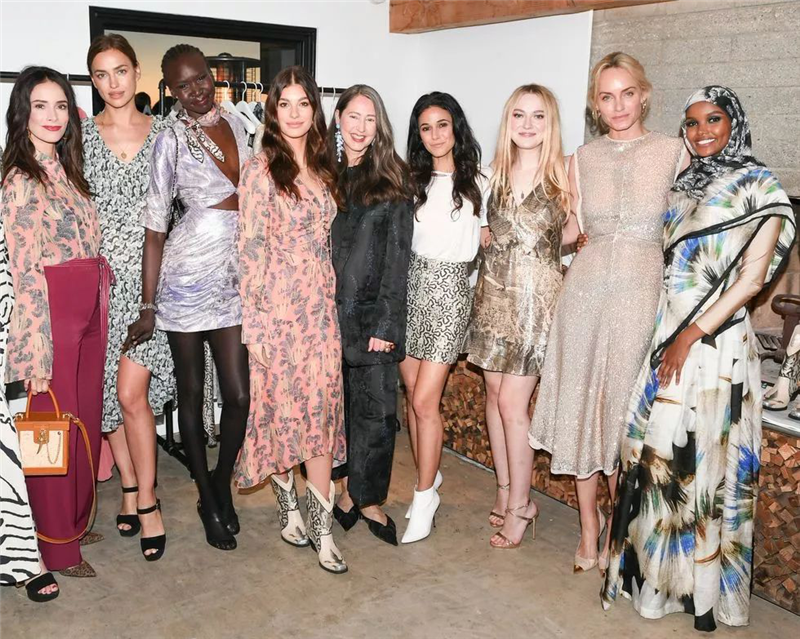
In fact, even the sustainable clothing line that H & M rented out this time has been questioned by the outside world as false propaganda. At the beginning of August this year, according to foreign media Dezeen, Norwegian Consumer Regulatory Agency accused H & M's sustainable fashion series H & M Conscious of suspected false marketing, causing consumers to make purchase decisions that they would not otherwise make, in violation of Norwegian marketing laws. Elisabeth Lier Haugseth, the supervisor of the regulator, said that the sustainability information provided by H & M to consumers was "not enough" and did not fully explain the actual environmental benefits of each garment, such as the amount of recycled material per garment. H & M responded that it was discussing with the agency how to make the H & M Conscious series of ads more accurate. Clothing rental is not a perfect business, nor is it the only life-saving straw for fast fashion choices. Fast fashion, who completely woke up from a dream, has realized that more new attempts must be made.
In September this year, H & M Group unexpectedly announced that it would sell other apparel brands in H & M brand stores. The brand first stated on a recruitment website that it would be open to external brands to increase brand vitality. H & M has developed an implementation plan and will test it at some H & M stores. Previously, H & M Group's & Other Stories and Arket had tried to sell other external brand products in the store. Some analysts believe that this move marks a major strategic change for the 72-year-old fast fashion brand. It goes without saying that H & M is expanding its boundaries. In addition to Zara and Uniqlo, in the future, it may compete directly with multi-brand online retailers such as Zalando in Germany and ASOS in the UK. H & M's transformation measures finally saw results this year. In the third quarter, sales increased 12% year-on-year to SEK 62.57 billion, and net profit rose 25% year-on-year to SEK 5 billion. Some analysts said that the H & M performance recovery mainly comes from the contribution of the group's digital strategy.
It is worth noting that the growth in the third quarter is the first time that H & M Group has achieved profit growth after declining performance for eight consecutive quarters. Overall, fast fashion is far from being out of danger. Topshop's parent company Arcadia Group, New Look, Forever 21 are repeating the path of recession, withdrawing from the Chinese market and filing for bankruptcy. Gap sub-brand Old Navy recently announced the launch of the Chinese market. American Eagle announced that it would withdraw from the Japanese market after leaving the UK market in 2017. The alarm bell is still ringing. Apparel leasing, launching an e-commerce platform, and even selling other brands in stores are all means, not problematic. Fast fashion hopes to turn around, and the core goal is still how to connect with young people.
所有评论仅代表网友意见
